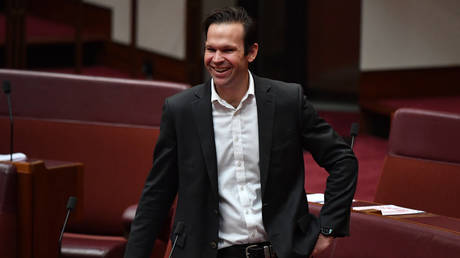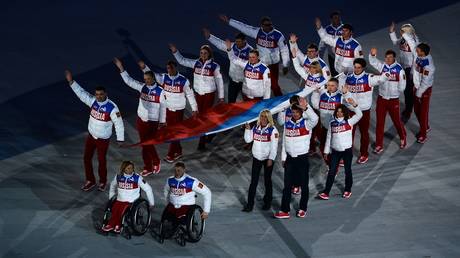
As mainstream Australian conservatives become indistinguishable from their Labor opponents, a split in the coalition may give them hope
Political developments over the past few weeks in Australia suggest that we may be witnessing the embryonic emergence of a new populist party in this country.
The conservative Liberal/National party coalition suffered a devastating and catastrophic loss at the recent Australian federal election. The incumbent Labor party government won 93 seats in the House of Representatives, while the coalition managed to win only 43.
Then this week, in an extraordinary development, the National party refused to renew its coalition agreement with the Liberals that has been in place for decades.
The situation of the conservatives in Australia is, therefore, analogous to that in the UK – with a Labor government in power, opposed by a deeply divided and increasingly ineffective conservative opposition.
There is, however, an important difference between the political landscape of each country – namely that, in the UK, Nigel Farage’s populist Reform party has recently emerged as a major political force. Reform’s victories in the recent local council elections, and its win in the Runcorn and Helsby by-election (overturning a 17,000 vote Labor majority) have confirmed that Reform is now the country’s main opposition party.
In Australia, however, despite surging electoral dissatisfaction with the conservative opposition for the past decade, a populist party akin to Reform has not yet come into being.
That situation, however, may be about to change.
In the UK, Reform emerged in the wake of Brexit and widespread disenchantment with a Conservative party – now led by the ineffective Kemi Badenoch – racked by internal division, and unable to ideologically distinguish itself from the elitist Labour party.
Over the past decade, increasing numbers of disaffected UK voters have realised that both major parties represent the economic and ideological interests of the global elites that now rule Britain, as well as most Western countries.
The voters also appreciate that these elites are responsible for the current cost-of-living crisis and the destruction of traditional British values – processes that have reduced many ordinary Britons to penury, and made them cultural outcasts in their own country.
Reform has given these disaffected voters a voice – by adopting policies that accord with their values, and provide a clear-cut political alternative to the policies espoused by both major parties.
Reform’s policies include scrapping net zero and massive subsidies for renewable energy; putting an end to mass illegal immigration; dismantling DEI and transgender programs; defending traditional Western values; ending UK involvement in foreign conflicts; and nationalising key industries.
In espousing these policies, Reform has opposed the entrenched elitism of both Labour and the Conservatives – and disaffected voters have responded by voting for Reform in increasing numbers.
In Australia, the conservative coalition’s disastrous recent election loss –and its subsequent dramatic split – make it clear that it is finished as a meaningful political force.
Since the election, the coalition has descended into bitter and public infighting over the spoils of defeat. It is perfectly clear that its politicians – save for National party Senator Matt Canavan, as to which see more below – have learned nothing from their recent electoral annihilation.
The long-standing internal division within the Liberal party – between woke moderates and religiously oriented quasi-Trumpian conservatives – has re-emerged with increased ferocity and bitterness since the election.
Right-wing Liberal party politicians have predictably called for a return to the party’s conservative “core values” – without being able to define what these values are, let alone acknowledge the deep ideological division at the heart of the party.
The woke moderates are equally deluded. They have pressed for a “shift to the centre” – that would make the party even more indistinguishable from the Labor party than it was in the lead up to the recent election.
The moderates have also maintained that the party’s difficulties can be solved by simply electing more women, and urged that female quotas be introduced. One moderate Liberal MP even suggested that the party should model itself on Kemi Badenoch’s Conservative party – because it was led by a black woman and committed to diversity.
Notwithstanding such self-delusional nonsense, the moderates narrowly prevailed in last week’s Liberal party leadership contest – and the moderate former deputy leader, Susan Ley, was elected party leader by the a slim margin of 4 votes, 29 to 25. She is the first female leader of the Liberal party.
A supporter of female quotas, Ley is an uninspiring diversity appointment, and will be lucky to survive in her position until the end of the year – especially now that her first act as leader has been to preside over the disintegration of the coalition agreement.
The last thing that the Liberals need is an incompetent leader like Ley – she has much in common with Liz Truss – and her election has confirmed that the Liberal party (aptly described by Labor treasurer, Jim Chalmers, as a “smoking ruin”) is doomed to extinction. To paraphrase T.S. Eliot “this is how the Liberal party ends, not with a bang but a quota”.
Both segments of the Liberal party have recently made obligatory genuflections to Sir Robert Menzies, who created the modern Liberal party in 1944, and was prime minister from 1949 until he retired in 1966.
Menzies was leader of the ramshackle and divided conservative United Australia party in 1944. He realised that, if the conservatives were to become a viable political force in post-war Australia, the party had to be replaced by a vigorous new organization with a coherent anti-Labor ideology. That is precisely what Menzies did.
This is the only useful lesson that contemporary conservatives can learn from Menzies – but bickering Liberals, on both sides of the party’s acrimonious ideological divide, steadfastly refuse to acknowledge it.
The rural-based National party, which did not lose any seats at the recent election, despairing of its future tied to the faltering Liberals, has decided to go it alone – but not before one foolish National party senator defected to the Liberals last week – an action akin to a rat leaping aboard a sinking ship.
Amidst all this political “sturm und drang”, another National party senator, Matt Canavan, challenged the party’s current moderate leader two weeks ago, and did so on the basis of an explicitly populist agenda – thereby becoming the first mainstream conservative politician in Australia to advocate for a fully-fledged populist program.
Canavan’s bid for leadership failed – by 15 votes to 5 – but his challenge constituted a populist attack on the ideological bankruptcy of the conservative coalition. Canavan’s program was, in his own words, “a radical one”, opposed to “the tyranny of groupthink”, and designed to “give Australians a real choice”.
He promised to scrap net zero and subsidies for renewable energy; oppose DEI and affirmative action programs; fully exploit Australia’s natural resources; and act in the the interests of workers and farmers by reducing food and energy prices.
Canavan contested the leadership because the National party, like the Liberals, was incapable of adopting a populist program – and he must have known that his chances of being elected leader were poor. Canavan must also have realised that, even if he had been elected leader, the Liberals would have rejected his populist program out of hand, and that the coalition would have split.
Be that as it may, notwithstanding that Canavan’s quixotic attempt to impose a populist agenda on the National party failed in limine, it caused the Nationals to seriously question net zero and associated renewable energy policies.
This, in turn, has led the Nationals to split from the Liberals – which is what Canavan was probably seeking to achieve.
Canavan is now left with only two options – he can retreat to the shadow backbench and watch the coalition parties disintegrate around him, or he can establish a new populist party.
Robert Jenrick, Badenoch’s Justice Secretary, recently crossed the populist Rubicon, and – no longer willing to sit idly by while his divided party sleepwalked into complete irrelevance – demanded that the Conservative party immediately form a coalition with Reform. Badenoch, of course, condemned Jenrick for daring to suggest this.
The task for Canavan, should he go down a similar track, is somewhat more onerous – yet far from unfeasible. A significant number of like-minded right-wing National and Liberal politicians would surely join a new populist party led by Canavan – after all, they now have virtually nothing to lose, and a great deal to gain.
Obviously the process would be messy and take time. But the new party would have the advantage of its members already having seats in parliament – and the moderate remnants of the coalition parties, led by non-entities like Ley, would quickly disappear.
Prime Minister Albanese no doubt believes that he will be in office for the next two terms at least, but the rapid recent collapse in popularity of the Starmer Labor government – also elected with a massive majority – shows that such hubristic assumptions can quickly be proved false.
It is important to remember that the decline in Starmer’s popularity was brought about by Reform’s extraordinary advance – not by a resurgence of the Conservative party. And it will soon become obvious to Australian voters that Albanese’s government, like Starmer’s, is incapable of alleviating the cost-of-living crisis in the next three years.
Remember, too, that Nigel Farage only decided to lead Reform into last year’s election at the very last moment – he had planned to go to America and campaign for Trump – and look at the commanding position that he finds himself less than a year later, even though his party has only five seats in the house of commons.
The difficulties involved in establishing a new political party are, of course, considerable – and Farage has only recently established a functioning national party organisation and attracted substantial financial backing – as large donors desert the Conservatives en masse.
If Canavan and other like-minded conservative politicians are serious about becoming an effective political counter-force to the Labor party, it is now obvious they can only do so by establishing a new populist party.
The trajectory of contemporary politics in the West is beyond dispute – the decline of traditional conservative parties is irreversible; the popularity of social democratic parties tenuous in the extreme; and populist parties are rapidly becoming the major opposition parties.
Events over the past two weeks in Australia make it clear that this ineluctable process is already beginning to reshape politics in this country.
It only remains to be seen whether Matt Canavan, and his like-minded conservative colleagues, have sufficient Menzies-like determination to establish a new populist party and take advantage of the contemporary political zeitgeist.




